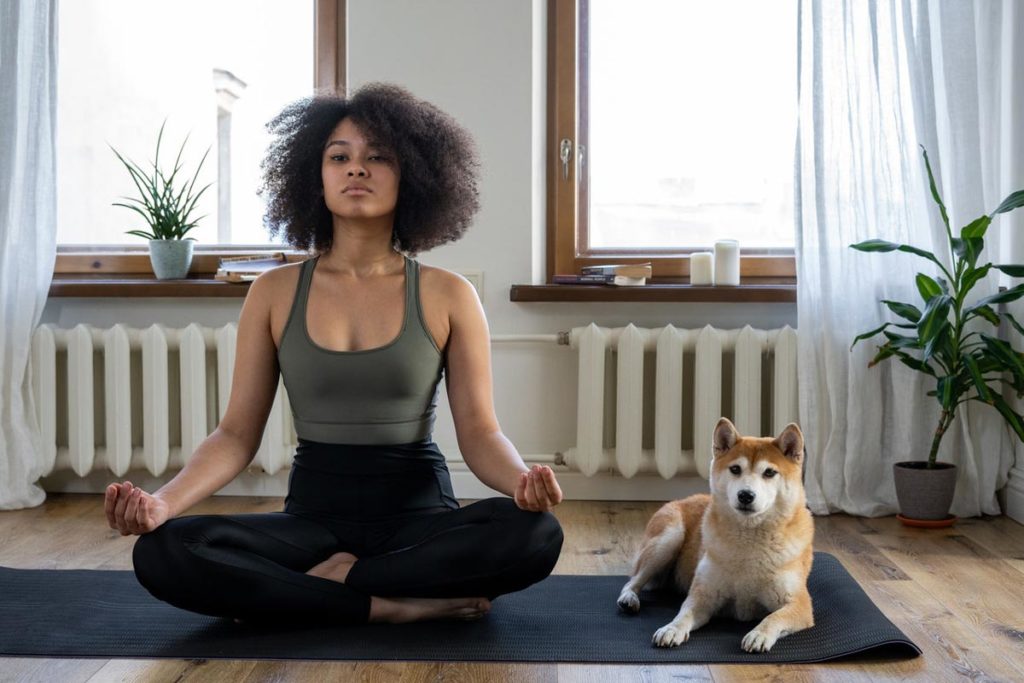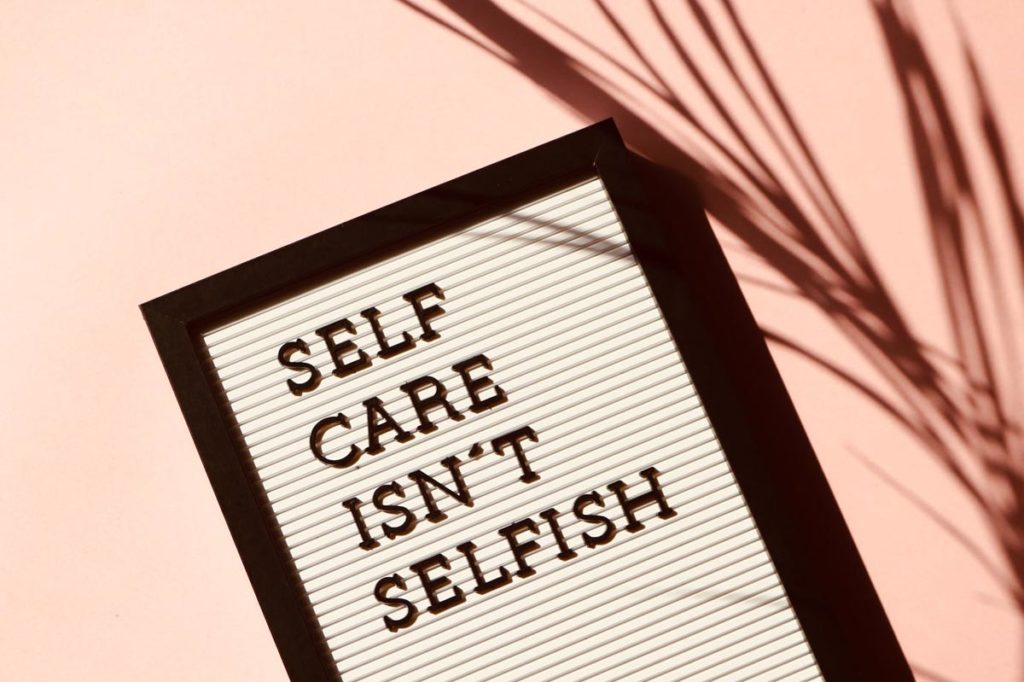
When I first started thinking about self-care, I was at an all time low in my life. I was crying all the time and emotionally out of wack, I doubted my ability to actually accomplish my dreams, my skin was in shambles, I was not eating well and put on weight, I hated the career path I had chosen, and post-divorce dating had me showing all my insecurities and self-sabotaging things before they could get started. I would suffice it to say I needed more than a #SelfCareSunday. Your girl needed a whole self care year. One day definitely wasn’t enough to pull myself together.
So as I started thinking about what I needed to do, I knew a bubble bath or a massage wasn’t going to cut it. You see, we live in a time where self-care is no longer just about taking care of yourself. It’s become the hottest commodity and trend in the marketplace that every wellness guru is now raving about trying to convince you of the self-care detox tea, self-care diet, self-care make up, or self-care retreat that will overhaul and change your life. Don’t get me wrong, these things may help, but are not the holy grail to hang your self-care hat on.
The reality is that self-care has become the Instagrammable solution to the much larger mental health burdens we all face every day trying to navigate and cope with the pressures and demands of everyday life. We are all fighting battles no one knows about and desperately seeking solutions. Yet self-care is always made out to be this super blissful experience we need to indulge in that’s filled with milk baths, rose petals, yoga classes and vegan diets. So if you’ve been stressed about how to actually self-care, I understand, sis. It’s time to strip down this concept of self-care once and for all.
So what exactly is self-care?
I’m no expert and know that everyone will have their own definition of what self-care is, but at its core, to me, self-care is simply a behavior or group of behaviors you engage in for taking care of yourself. Run a quick Google search and you will find this:
SELF-CARE /’self ker/ noun. the practice of taking action to preserve or improve one’s own health
So if that’s all it takes, why has it become so complicated to self-care? That’s the magic question that likely has you and everyone else confused for that matter. If we take it back to the basics, I think it’s important to think about what you are trying to care for. Let’s take me for example to illustrate how you can start thinking about self-care. I had many areas in my life I was dissatisfied with. The more time I spent reflecting on these things, I was able to break them down and realize I needed a very holistic self-care approach to overcome the things that were weighing me down and keeping me from living my best life. This breaks out into about 6 types of self-care that I needed to help me focus on selecting activities that could improve my life and overall happiness.

The 6 Types of Self-Care
There are so many ways to self-care when thinking about practices and activities you can incorporate that will vary from person to person based on your preferences. But if you are truly trying to improve your overall well-being through self-care, it helps to start thinking about your self-care in terms of the key areas that need some TLC. Yes, I said AREAS because self-care is not just one thing. Here’s what I mean.
(1) Physical Self-Care
You’re likely familiar with physical self-care. Everyone on the ‘gram is sharing their workout routines, vegan diets, acai bowls, yoga poses and the like to get you motivated to jump on the band-wagon. When you’re considering your physical self-care, you should focus on activities to improve the well-being of your physical health.
Examples: Running in the park, staying hydrated with sufficient water, eating a healthy, balanced diet, etc.
(2) Emotional Self-Care
When you’re in your feelings like Drake and feeling the need to better connect, process and reflect on the full range of emotions going on inside of you, it’s time to focus on your emotional self-care. It’s always a good idea to create space and make time for activities that will allow you to feel all the feels.
Examples: Writing in a journal, seeing a therapist, creating art, playing music, etc.
(3) Practical Self-Care
We all have goals we want to achieve when it comes to our career, finances, and lifestyles. In our heads we see ourselves as corporate bosses, creative entrepreneurs, mompreneurs and more, so it only makes sense that you should reserve self-care time to focus on activities that help you fulfill core aspects of your life in order to live your best life and prevent future stressful situations.
Examples: Taking professional development courses, creating a personal, business or travel budget, organizing and creating a sacred space in your home for yourself, etc.
(4) Mental Self-Care
Your mind totally affects how you vibe on any given day so you want to be sure you are feeding and training your mind to support you as you navigate the many things life will throw your way. When focusing on your mental self-care, you should engage in activities that stimulate your mind and your intellect.
Examples: Reading personal development & self-help books, playing chess, going to a museum, etc.
(5) Social Self-Care
Self-care isn’t just about you, yourself and more you. A big part of our growth as human beings is because of the relationships we nurture and foster with others. So a huge part of your self-care would be remiss if it didn’t include people. Don’t make the same mistake I did while trying to heal thinking you can just avoid people like the plague. Support systems are a whole life-line and you need people. Period. When tending to your self-care, you should also focus on activities that nurture and deepen relationships with people in your life.
Example: Brunch with friends, going on dates, calling your mom or dad regularly to check-in, etc.
(6) Spiritual Self-Care
Having something to anchor you along your journey is so important. And regardless of where you stand on your religious beliefs or spirituality, I think we can agree having something bigger than us, that moves us, and gives us hope is important to have as part of our daily lives. If you’re feeling the need to connect and align your soul as part of your self-care, you should focus on activities that nurture your spirit and allow you to think beyond yourself. Spiritual self-care does not have to be religious, although for some people it may be.
Examples: Being in nature, listening to spiritual/faith-based podcasts, time set aside to self-reflect, yoga, meditation, etc.
So why is self-care stressing you the F out?
I am sure you’re wondering if there are 6 core areas to self-care, why is it so complicated and confusing? It’s the pressure to have our self-care routines perfected and presentable to those around us. One more load we’ve decided to put on our backs and carry when it doesn’t have to be that way. It’s a need to keep up with the latest and greatest routines on social media or keep the superwoman costume on display as one more thing that we can master. But the truth is, self-care is a mission, not a show. You don’t have to subscribe to any method, go on a retreat, spend all your hard-earned coins, or expect some magical outcome. You simply just have to commit to taking care of yourself in a more holistic way doing things that bring you joy and make sense for your lifestyle and budget.
Make self-care work for you
Instead of hopping on the band-wagon and trying to keep up with every recommendation on self-care you see fly across your Instagram feed, here’s 3 simple things you should do:
(1) Be honest. Get real with yourself on the self-care areas you need to improve in and pick 2 that you can focus on (you don’t have to be a hero and try to do everything at once, but if you want to, that’s your prerogative).
(2) Practice Daily. Determine 1-3 self-care activities that suit your lifestyle that you can incorporate as part of your daily habits and routines (remember, you should practice self-care daily, not just on Sundays).
(3) Give Yourself Grace. Allow yourself grace and compassion as you implement these small changes and simply adjust when necessary (remember, the point isn’t to be perfect, but about getting moving and taking baby steps toward self-improvement and a more fulfilling life).
How have the expectations and hype around the self-care movement stressed you out. Sound off in the comments and let me know.





I really appreciate that you broke down the different buckets of self-care. That cleared up some things for me!